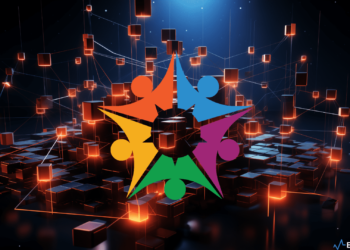According to Ben Goertzel, the CEO of Singularity.net, a decentralized marketplace for AI running on the blockchain, Google has played a very significant role in the success of ChatGPT. On December 29, 2022, Goertzel stated that ChatGPT, a variant of the popular GPT-3 language model, was “clearly influenced by Google’s expertise in machine learning and natural language processing (NLP).”
1) ChatGPT is super cool and fun but it's important to recall OpenAI made basically zero fundamental innovations. Actually the basic innovation behind the GPT software was made at Google Brain in Mountain View
— Ben Goertzel (@bengoertzel) December 29, 2022
ChatGPT is a modified version of the Generative Pre-training Transformer 3 (GPT-3) language model created by OpenAI. GPT-3 is a highly advanced NLP model capable of completing various tasks such as translation, summarization, and answering questions. In contrast, ChatGPT is specifically tailored for use in conversational AI and can produce responses that are similar to those of a human when given prompts.
ChatGPT’s success can be attributed to its ability to produce coherent and appropriate responses to prompts, making it a useful resource for chatbots and other conversational AI systems. It also excels at maintaining context and coherence throughout multiple exchanges in a conversation, a difficult feat for many language models.
Talking about the involvement of Google in the success of ChatGPT, Google has a long history of research and development in the field of machine learning and NLP. The company has developed several state-of-the-art models and technologies in these areas, including the Transformer model, which serves as the basis for GPT-3. In addition, Google has also released several large-scale datasets and resources for NLP research, such as the Google Ngram dataset and the Google Books Corpus.
The design of ChatGPT and other natural language processing (NLP) models has been significantly influenced by the tools and technology developed by Google. The Transformer model, developed by Google researchers Vaswani et al., has been extensively used in the creation of GPT-3 and other language models and has emerged as the standard option for NLP tasks.
Furthermore, Google has put a great deal of effort into the development of conversational AI technologies, including its Assistant and Dialog Flow platforms. These platforms have helped to drive innovation in the field of conversational AI and have potentially played a role in the success of ChatGPT and other models that have a similar focus.
The development of ChatGPT has benefited substantially from Google’s experience and investments in machine learning and natural language processing (NLP). ChatGPT and other NLP models have been affected by the company’s development of the Transformer model and distribution of massive datasets and resources. The introduction of conversational AI technologies by Google may have also aided in ChatGPT and related models’ success.










